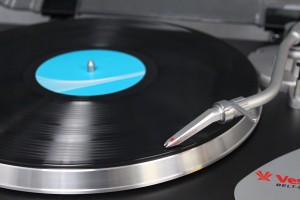Sarah-Joy Maddeaux of our You Are Hear: sound and a sense of place project muses on how sounds can transport us to difference times and places.
Smells and tastes are evocative senses; this is well-known. A whiff of a particular aroma instantly transports me to the place where I once encountered that scent. The smell of an extinguished match smells like birthdays, that moment at the party when you blow out the candles on the cake. The smell of chlorine takes me back to swimming lessons. The warm smell you encounter of an upstairs room on a hot day reminds me of summer; the dusty smell when you first put the heating on for the year reminds me of winter. As for the smell of a library book, well, that is a heavenly odour that evokes happy days spent discovering new texts and re-reading well-loved ones. A taste of a familiar food, too, can bring me back to childhood. A baked apple is associated with Bonfire Night; the first clementine of the season tastes like Christmas.
But sound? Certain songs remind me of a period in my life, or people I enjoyed the tunes with. But can ordinary, everyday sounds have the same effect? Working on the You Are Hear project has made me realise that, yes, sounds too can provoke memories of places encountered. After growing up in a port town, the horn of a ship reminds me of watching the slow progress of ocean-going vessels travelling through the locks. An oar quietly slipping through the water on a still morning brings back family canoeing trips. The honking of geese brings to mind autumn, and the start of a new academic year, with all the mingled expectation, fear, hope, and regret this entailed. The relentless clipping of hundreds of heels on hard floors, rhythmic but not quite in unison, will always remind me of my morning commute through the maze of underground tunnels during a brief period when I worked in London.
Thinking more about this, there are certain sounds that were distinctive to my childhood in the late twentieth century, sounds that only a comparative few (out of the course of human history) would identify with. The exquisitely sharp sound of a phonograph needle dropping into place, though this is enduring thanks to djs and music purists.
The drone of a dot matrix printer. The call of a dial-up modem (static at one pitch, static at a lower pitch, then wee-oh, wee-oh, all the while hoping, desperately hoping that it will connect).
For how much longer will these sounds be remembered? What sounds in human history have disappeared and been forgotten? In fifty years, will people know why the words ‘Unexpected item in baggage area’ spoken in an automated female voice provoke me to a frustrated rage because I HAVEN’T STARTED CHECKING OUT MY PURCHASES YET! Will an annoyingly chirpy whistle still prompt half of a bus-load of passengers to start rummaging in their bags looking for their phones?
Sound artists have realised the power of sound to evoke associations, and the danger of losing certain noises as our world changes. Aiming to record the present for future generations, they seek out those noises that compose everyday soundscapes, difficult to identify, but instantly recognisable to those who dwell in such soundscapes.
As part of the Heritage Lottery Funded project, You Are Hear: sound and a sense of place, we want to capture the sounds of twenty-first century Essex by making new recordings of what you can hear today. We will then pin these recordings to an online map, together with recordings made in similar locations or of similar activities decades ago, from recordings already in the Essex Sound and Video Archive. Will this show change, or continuity? I expect both.
We need your help. What sounds matter to you? What can you hear on a daily basis? What sounds do you think will disappear in ten, twenty, fifty, one hundred years? We are holding public consultations to ask you, the residents of Essex, what sounds mean Essex to you, or what Essex sounds like. Come along to one of the following events and tell us about your soundscape, and why you are hearing what you are, where you are.
1-3 October: George Yard Shopping Centre, Braintree
29-31 October: Grays Shopping Centre, Grays
12 November: ecdp offices, Chelmsford
19-21 November: High Chelmer Shopping Centre, Chelmsford
You will also have the opportunity to test our prototype audio comparison map; take a beginner’s workshop on making your own sound recordings; and learn more about the project. If you cannot make it to these events, please do pass on your suggestions of Essex sounds to: Sarah-Joy Maddeaux, You Are Hear Project Officer.


